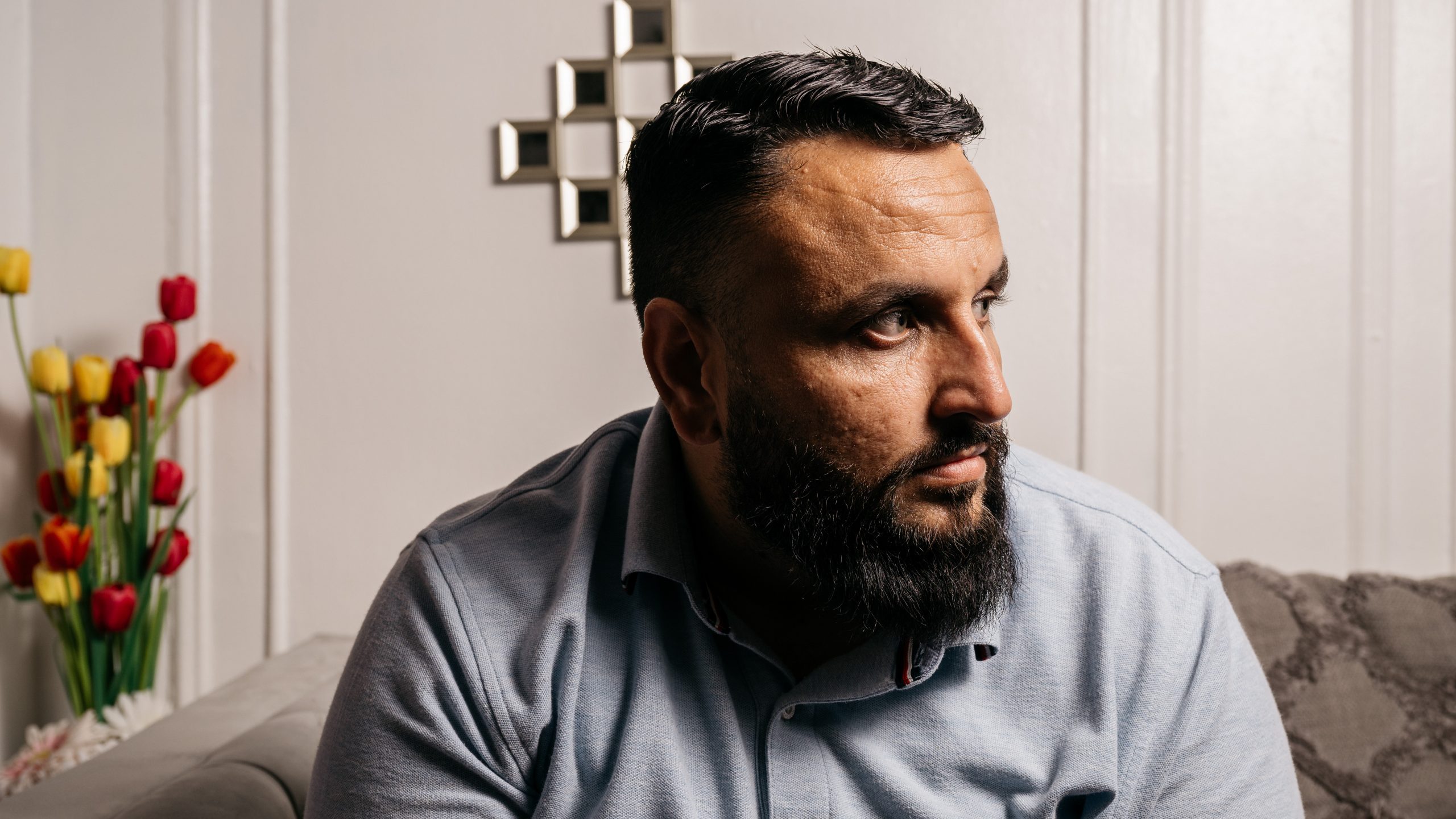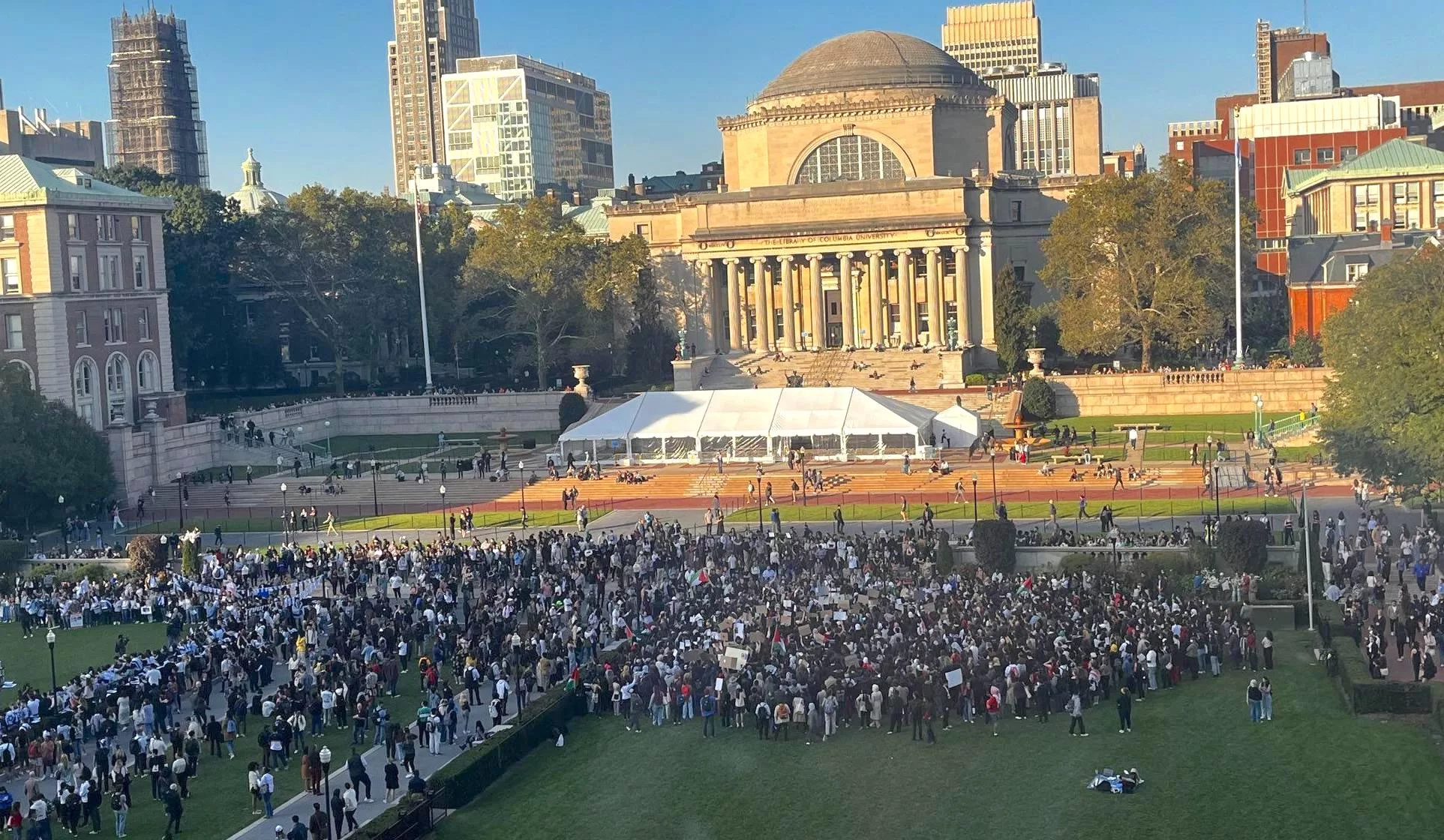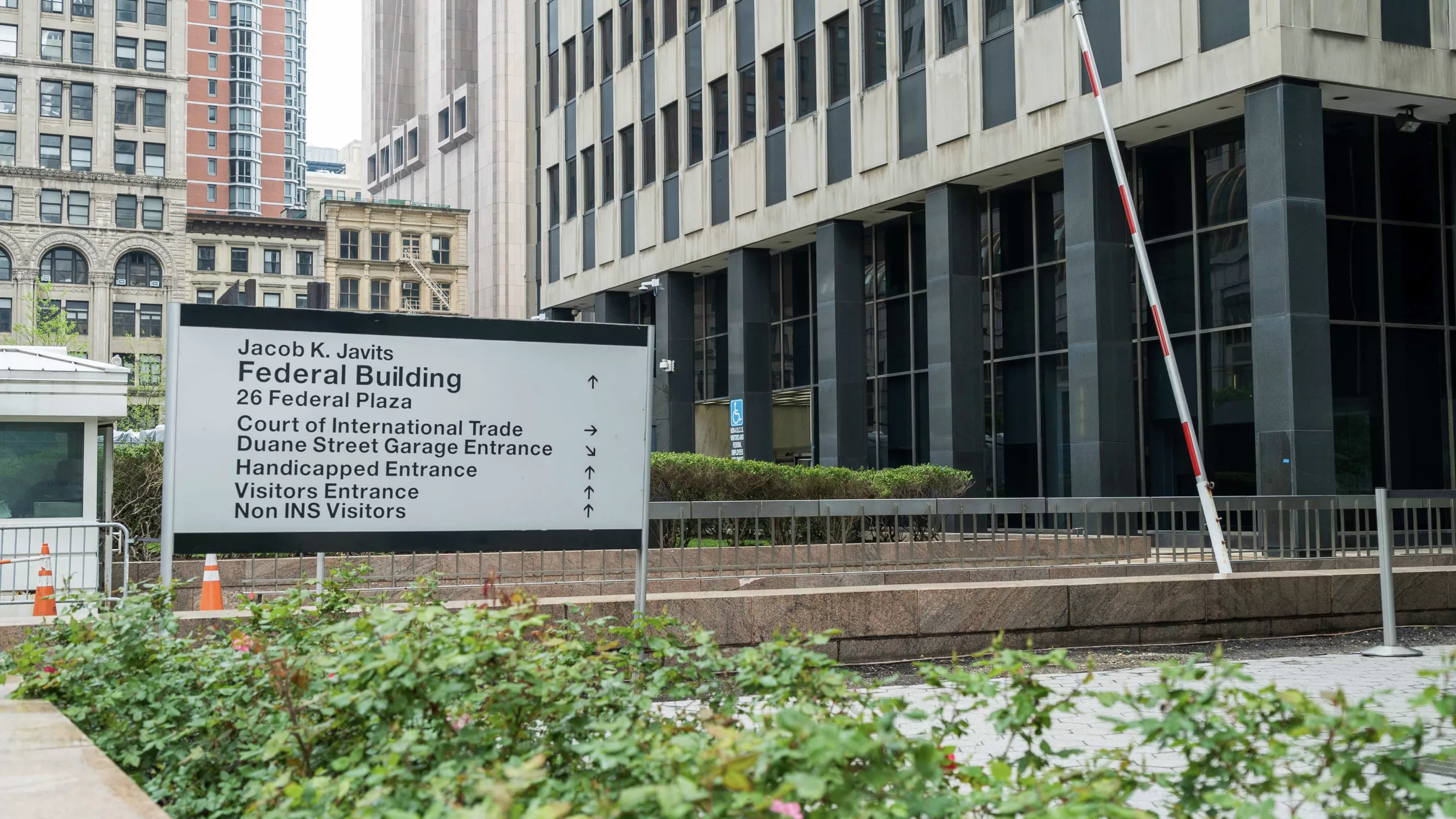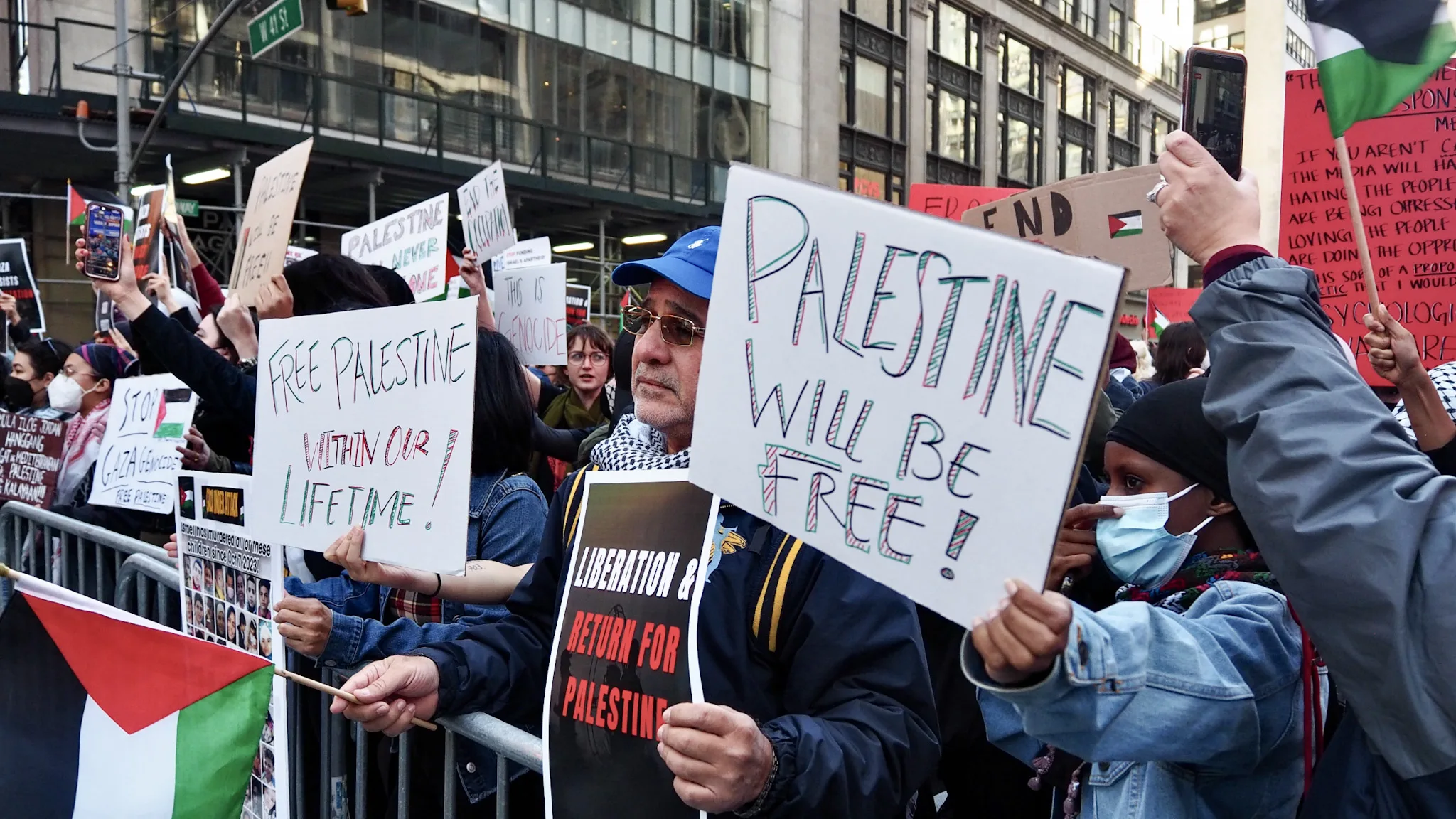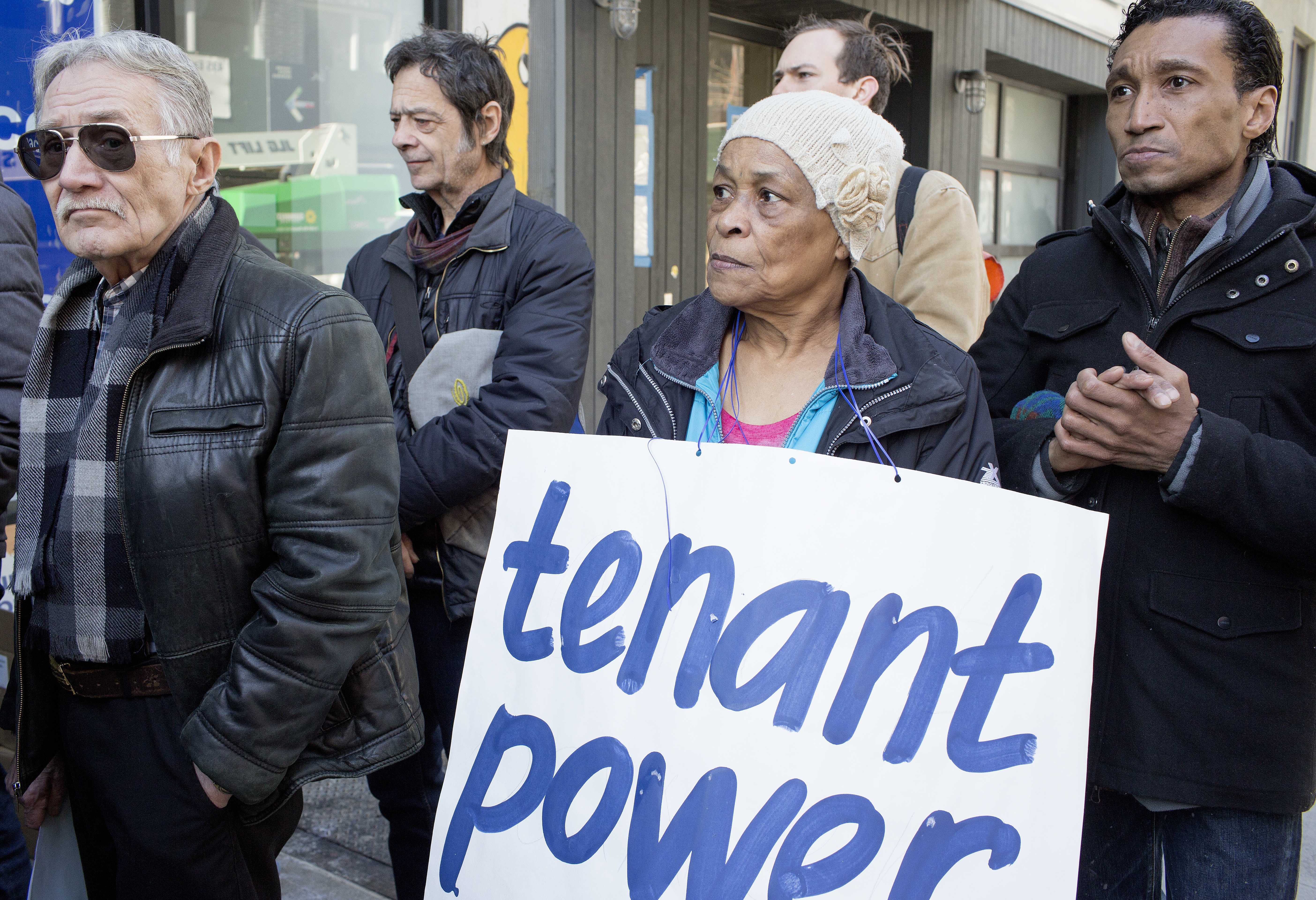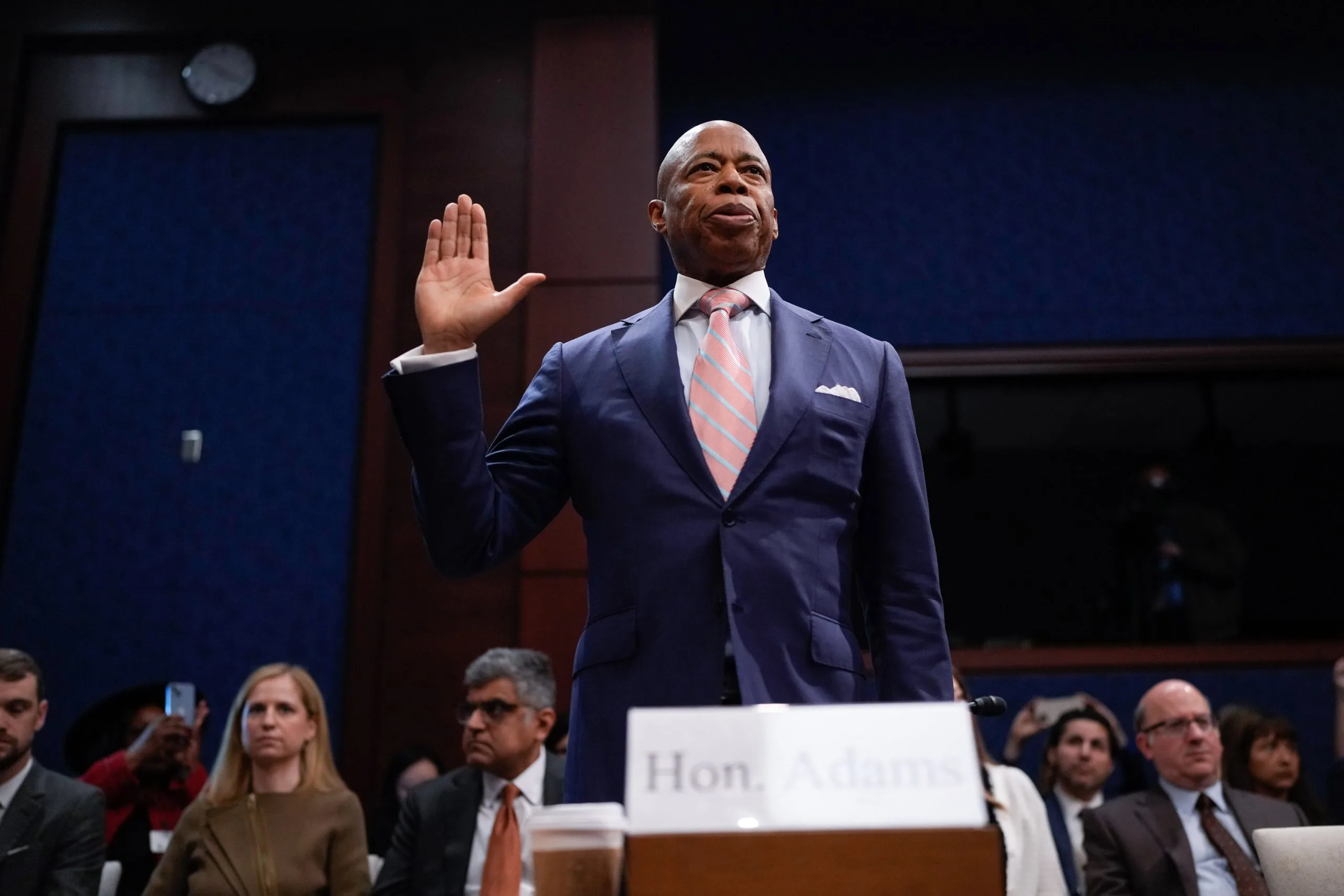On a cloudy day on June 4, 2021, crowds of men poured into Makki Masjid Muslim Community Center in Midwood, Brooklyn for jummah prayers. The mid-day Friday prayers are an especially holy time for Muslims and attract large crowds of worshippers. NYPD Deputy Inspector Richie Taylor sticks out among the group of South Asian men as he enters the mosque in official uniform.
The local police precinct has a longstanding relationship with the mosque and officers would regularly make announcements before prayers. They don’t know it yet, but this will be one of the last times that NYPD officers are allowed in the mosque.
The inspector is accompanied by community leader Raja Azad Gul, who confidently leads the way to a closed metal door. After a brief wait, mosque volunteer Ishtiaq Ahmed opens the door for them. Ahmed is dressed in a traditional black shalwar kameez with a brown kurta or waistcoat on top. He counts how many people enter and allows Gul, NYPD Inspector Taylor and another elderly Pakistani to walk inside the main prayer space of the mosque.
Ahmed then sticks his hand out and blocks the entrance for the remaining three community members and NYPD Community Affairs Officer Natasha Moseley-Jones. “That’s it, that’s it,” Ahmed can be heard saying on the mosque’s CCTV footage of the incident, “No space, maximum three person.” In Urdu, he briefly responds to community members’ objections and shuts the door.
It was Ahmed’s responsibility to ensure adherence to COVID-19 safety protocols by limiting the number of worshippers in each prayer room in order to adhere to social distancing guidelines. It’s clear from the videos that there is no physical interaction between Ahmed and any of the community members.
Yet, three weeks later, three police officers entered the mosque during busy jummah prayers and arrested Ahmed, charging him with assault for allegedly attacking Adil Khan, a community member who sought to accompany NYPD Officer Jones into the mosque.
Whenever Ahmed discusses the incident which took place in June of last year, his usually calm demeanor gives way to anxiety. “I never imagined the police would do this in this country. They really destroyed my life,” he says.
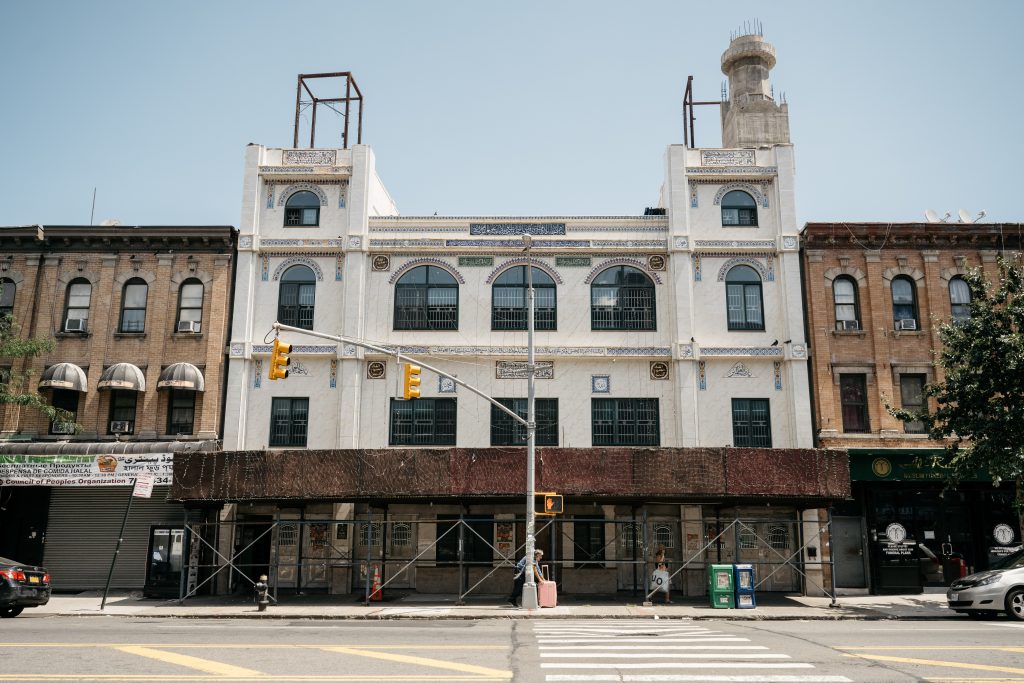
Ahmed maintains his innocence and says the charges are fabricated. His arrest and ensuing legal battle capture how the NYPD’s surveillance of Muslims continues to tear apart immigrant communities and wreak havoc on the lives of working-class immigrants like Ahmed.
Also Read: How the FBI Coerced This Muslim Immigrant Into Working as an Informant
Makki Masjid is one of the many mosques the NYPD would regularly visit. Soon after Ahmed’s arrest, however, the community decided to end that relationship, and officers are no longer allowed in the mosque.
In the time before Ahmed’s arrest, NYPD officials would come to the mosque to introduce new officers to the community or share information with young people about NYPD recruitment. According to Ahmed, Makki Masjid mosque officials would often encourage worshippers facing issues to speak to community leaders like Raja Azad Gul who works closely with the NYPD.
These tactics are part of the NYPD’s neighborhood policing model, which the NYPD says is built on “improved communication and collaboration between local police officers and community residents ”through increased “connectivity and engagement with the community.”
The neighborhood policing initiative is backed by the New York Police Foundation, a nonprofit organization that provides additional resources for the NYPD. The Foundation established the Community Partner Program and boasts that “650 community leaders serve as liaisons between local cops and neighborhood residents.”
Critics of community policing argue it’s a continuation of surveillance practices but in a softer form. “It makes possible much deeper surveillance and enforcement,” says Fahd Ahmed, executive director of Desis Rising Up and Moving which organizes working-class South Asian and Indo-Caribbean communities.
“Community liaisons pursue the same function of gathering information for police operations and then that information is weaponized against communities.”
Community policing is an expensive endeavor. In addition to the NYPD’s $11 billion budget, the New York Police Foundation allocated $3.6 million dollars in fiscal year 2022 to expanding neighborhood policing and community support.
Gul is one of these liaisons, describing himself on Twitter as a “Pakistani American community leader representing community’s interest and advocating for the community with NYPD.” He has been working closely with the NYPD for over 10 years according to the local precinct, and his Facebook and Twitter are filled with posts celebrating the appointment of new officers, promotions within the department, and highlighting the NYPD’s presence at community events. He was recently awarded a Civilian Commendation Award from the NYPD at an event hosted by the precinct. Gul did not reply to requests for comment.
During the video of the alleged assault, Gul says to Officer Moseley-Jones about Ahmed, “Write his name. I’ll give you his name and then we’ll see.”
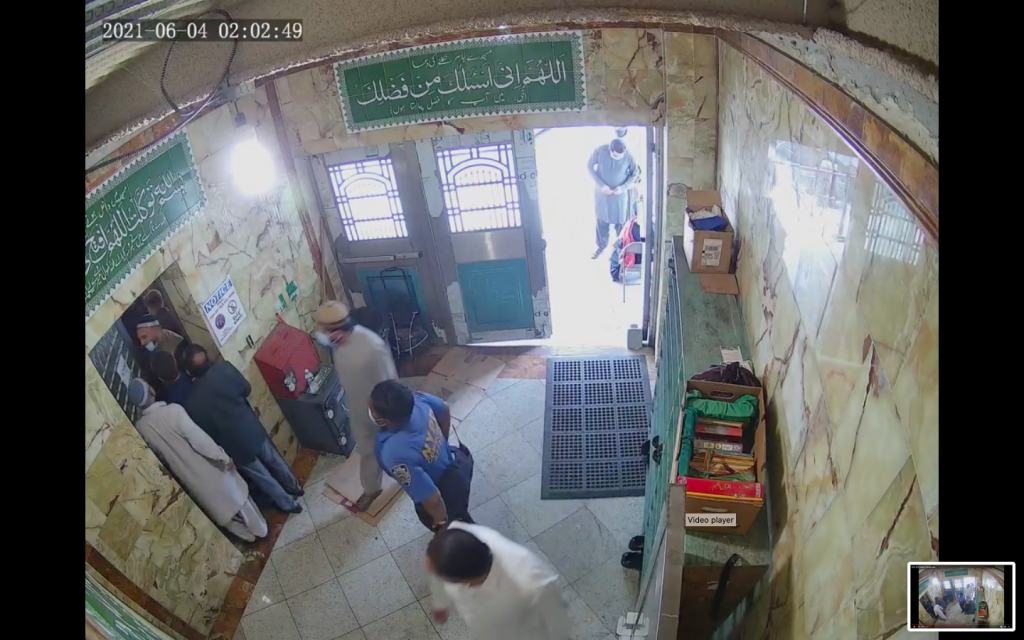
Officer Jones was present during the entire interaction and signed the police report alleging that Ahmed assaulted Adil Khan and threatened Khan with arrest. Khan, one of the community leaders who Ahmed prevented from entering the main prayer area, told ethnic media outlet Vosa TV that he did not sign any documents related to a police report and cannot read or write in English.
After his arrest, Ahmed spent the night in jail and missed his 10-year old daughter’s elementary school graduation, he said. Ahmed’s TLC License was also suspended, so he was unable to work as a driver for Uber or Lyft. Because he couldn’t work for three months, he fell behind on his rent.
In September 2021, the Brooklyn District Attorney’s office dropped the charges against Ahmed and his license was reinstated shortly after.
Makki Masjid used to be a space for Ahmed to pray and catch up with friends and family members, but now that has changed. “I used to go to prayer there, but I don’t anymore because I don’t feel safe. I feel anxious whenever I think about the arrest. Anxiety, depression,” says Ahmed, “Every Friday I feel that, because that’s when the arrest happened. I feel scared whenever I see the clothes I was wearing that day.”
Many Pakistanis in Midwood fear the police, according to Bobby Khan, the executive director of the Coney Island Avenue Project, a neighborhood-based advocacy organization that was founded in the aftermath of 9/11. “The larger community is terrified of police acts,” says Khan, “they’re very afraid of talking to media about it but when they are in private, everybody talks about it.”
Also Read: Muslim Men On No-Fly List for Refusing to Spy Can Now Sue FBI Agents
South Asian communities’ fear of the police cannot be fully understood without looking back to the post 9/11 period when thousands of South Asian people were swept up in clandestine raids and mandatory check-in programs resulting in mass deportations. During this time, the NYPD designated mosques as terrorist organizations. The agency labeled the Makki Masjid mosque as a “Tier One” threat and investigated an imam from the community.
“In terms of the sheer number of people detained and disappeared, Makki Masjid was the most devastated,” says Ahmed of DRUM about the post 9/11 period, “and they tried to protect themselves by working with police and cooperating with them.”
The increase in Asian police officers has led to the proliferation of affinity groups such as the Pakistani American Law Enforcement Society. The number of Asian police officers within the NYPD has now risen to 10% whereas in 2014, Asian officers represented just 4% of the police force.
The NYPD coerced working-class South Asians into working as informants while also sending undercover police officers into mosques and community spaces. While community organizing, public outrage and high profile lawsuits have led the department to shift tactics, the legacies of these policies remain.
While the police department describes Gul as a community liaison, Ahmed and Khan refer to him as an informant.
Nearly 22 years after 9/11 and in the aftermath of Ahmed’s arrest, Makki Masjid no longer allows uniformed personnel or guest speakers to make announcements. On August 6, 2021, the mosque organized a press conference outside of its doors with chants of “Shame on 70 Precinct” and “No justice no peace” where speakers stood behind a large banner stating “Stop Muslim Harrasment: Muslim Community of Brooklyn Feels Insecure.”
As he tries to move forward from the arrest, Ahmed has found a new home for jummah prayers. “I’m the imam here in the JFK yellow cab parking lot. I feel good here.”
Ahmed sometimes leads Friday prayers with a group of 150 cab drivers who gather outside outside the John F. Kennedy International Airport. Praying with other working-class Muslims in the absence of police officers, Ahmed is reimagining what safety and community looks like.
